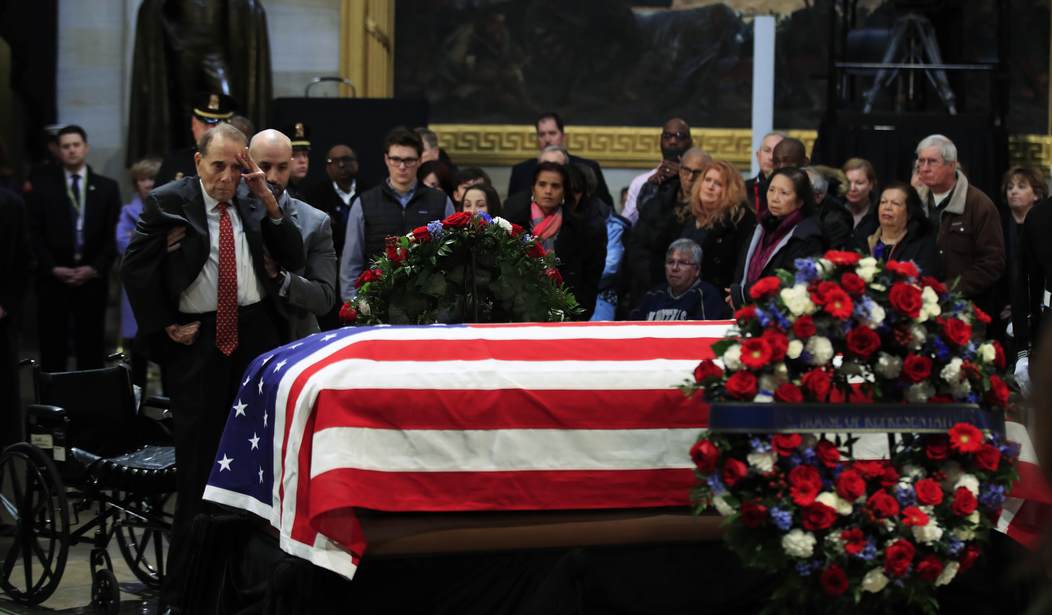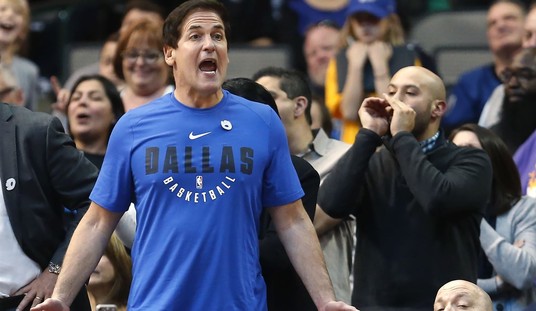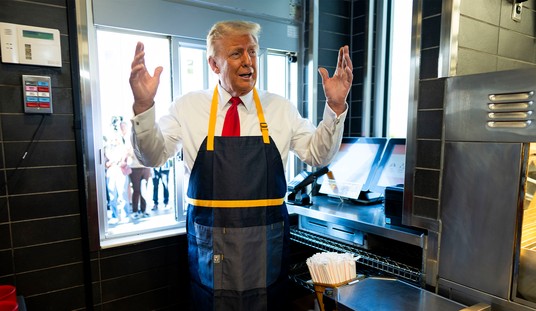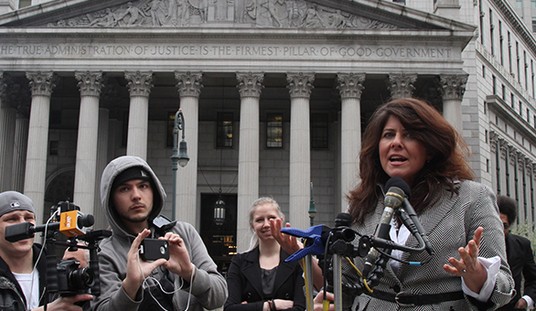Bob Dole didn’t die when a German mortar shell blew him into the crisp spring air of the Italian mountains in 1944, tearing apart his right side. He didn’t die when he lay in a foxhole there for nine hours, presumed dead.
He did die 77 years later on Sunday, at the age of 98, peacefully in his sleep in the Watergate apartment complex where he’s long lived with his wife, Elizabeth. Presumably from the Stage 4 lung cancer he announced earlier this year. Our colleague Jeff Charles has that news here.
During those intervening years, this Kansas prairie boy who would be the last member of the Greatest Generation to seek the presidency lived a life of adversity, service, suffering, endurance, dedication, patience, partisan politics, disappointment, joy, respect, and statesmanship.
One enduring image: Bob Dole struggling to rise from his wheelchair three years ago in the Capitol Rotunda to deliver a salute with his crippled hand to the casket of fellow World War II veteran and sometime GOP competitor George H.W. Bush.
Dole was that kind of man. A fierce competitor with iron-clad loyalty. A former chairman of the Republican National Committee who defended Richard Nixon and last year endorsed Donald Trump, admitting after the election that like many Americans he had become “Trumped-out.”
Dole could be grouchy to those close to him. That can happen when you must rely on someone to button your shirt every day for 77 years.
Dole could be savvy. In both the Senate minority and majority he was a key assembler of votes to pass important lasting legislation, such as the Americans With Disability Act.
He was also the major driver behind Washington’s World War II Memorial. In fact, for years he would visit that site two or three times a week, just to watch fellow old-timers walk about or to reminisce with them.
Dole wanted to succeed fellow Kansan Dwight Eisenhower into the White House. But Dole was a terrible modern political campaigner. Being your genuine self was just fine in Kansas, or probably anywhere in a fast-disappearing rural America.
But by 1996 consultants packaged national campaigns with different daily scripts and messages sculpted for TV and inattentive Americans. Candidates had to be telegenic. Remember, Bill Clinton even did a poll one year to determine where he should vacation.
Bob Dole couldn’t stay on-script. Like Bill Clinton’s wife 20 years later, Dole did not seem to have an overall vision for a presidency. But he persisted, as he had after 1944. “I trust in the hard way,” he once said, “for little has come to me except in the hard way.”
And then at a rally on Sept. 18 in Chico, California, disaster struck. Dole reached off the speaking platform to shake hands with supporters as he would back home.
The railing buckled. With no good arm for balance, the elderly Dole tumbled into the crowd. He was fine. But the contrast of a falling 73-year-old veteran with a limp arm from a long-ago war and a 50-year-old postwar Baby Boomer like Clinton was too much. Media mocking was brutal, as it usually is when a Republican slips.
But Dole could be self-deprecatingly funny. After his third unsuccessful bid to become president, the Clinton trouncing, Dole said, “I slept like a baby. Woke up every two hours, crying.”
Dole was a member of that almost disappeared generation that grew up knowing intimately the hardships of the Depression and then a world war. His mother was a seamstress who sold sewing machines. Dad ran a grain elevator. They lived in the basement of their house so they could rent out the upstairs for income.
Dole intended to become a doctor. But on that April day in Italy, just 24 days before the European War ended, as a member of the 10th Mountain Division, everything changed. He endured at least seven major reconstruction surgeries and three-and-a-half years of recuperation, most of it in bed. He became a lifelong advocate for veterans.
He also decided to study law. A local friend suggested Dole seek election to the Kansas House, as a Republican, of course. So Dole did, and won. Then, for Russell County Attorney. And won four times.
In 1960, Dole began eight years in the U.S. House and then 27 more in the Senate, where he built a reputation as a skilled crafter of legislation who knew exactly what other members needed to get their vote. In 1976, Gerald Ford wanted an attack dog as VP partner.
Dole was that attack dog, and that reputation would still dog him come 1996. But Ford had granted Nixon a Watergate pardon to end “our national nightmare.” That was another time when millions voted against an incumbent GOP president and got stuck with an incompetent Democrat, Jimmy Carter.
Near the end of the doomed 1996 campaign at a small Iowa rally, fellow senator and wounded war veteran John McCain said:
This is the last crusade of a great warrior. A member of a generation of Americans who went out and made the world safe for democracy so that we could have lives that were far better for ourselves and for our children.
As one sign of respect, Joe Biden, another longtime senator, has ordered all federal flags lowered to half-staff on all federal buildings and ships through Thursday. Biden also issued a lengthy statement and reminiscence,
“Once you lose,” Dole wryly observed to a reporter, “people like you.”
Years later in his 2005 memoir “One Soldier’s Story,” Dole wrote:
“Losing means that at least you were in the race. It means that when the whistle sounded, life did not find you watching from the sidelines.”
He was always in the race. And we never saw him on the bench.
Editor’s note: this article was edited for content after publication.













